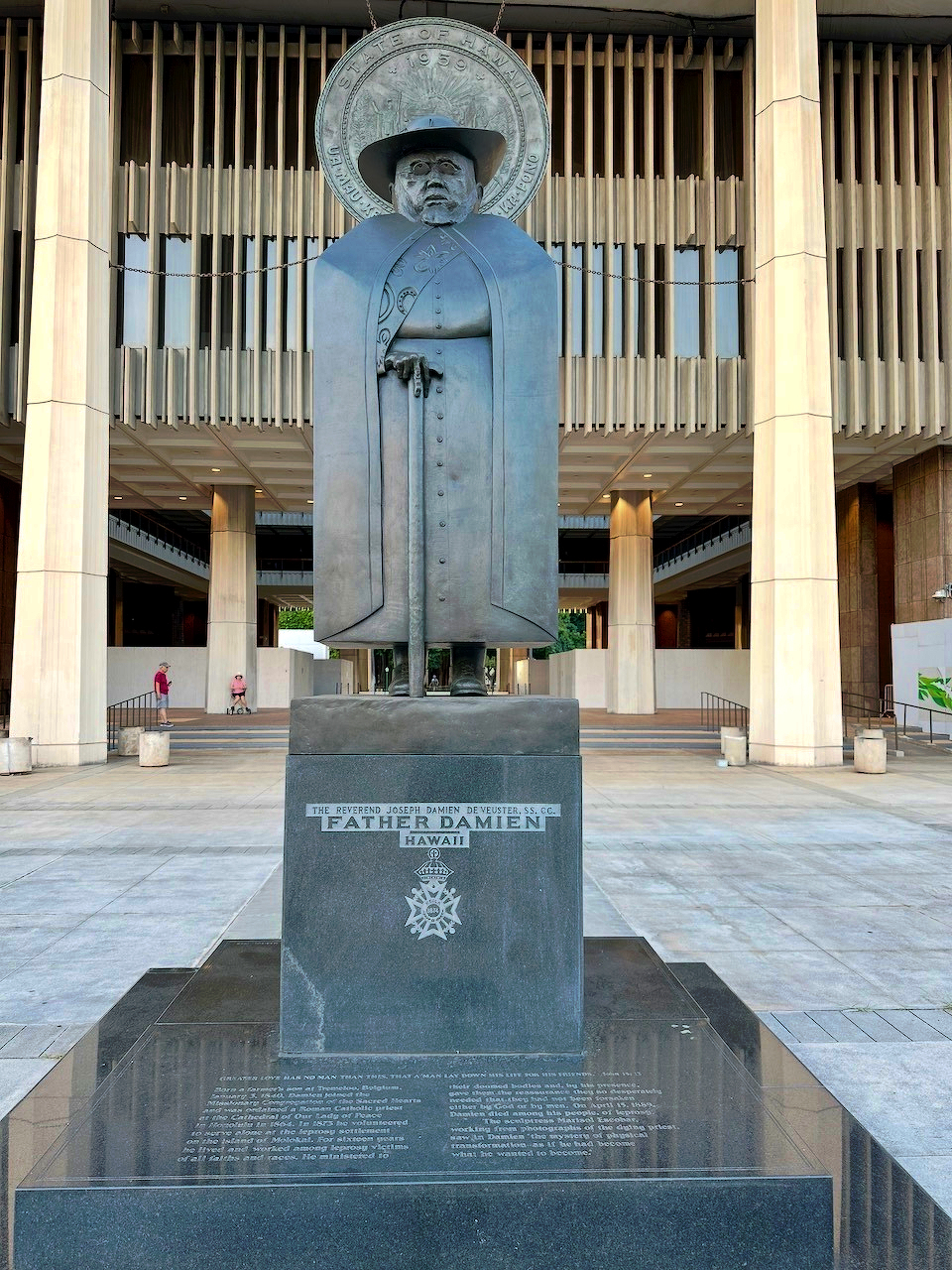The streets of Barcelona. They are not usually this littered, or so my friend says, but the wind is exceptionally strong today – strong enough that my flight back home is delayed for severe weather.
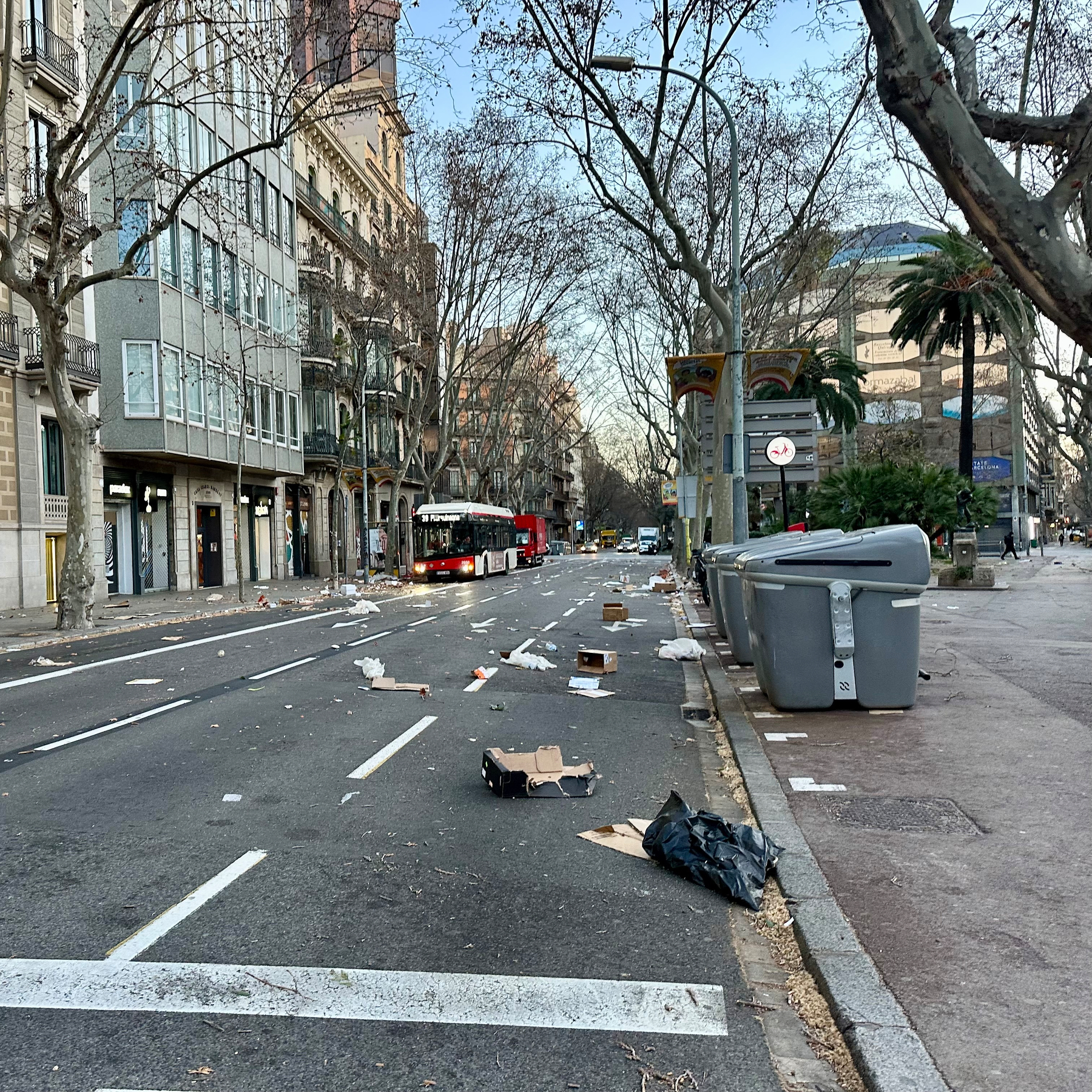
Where have all the hipster districts gone?
Last week was my first time in Portland, Oregon — all 48 hours of it. There were only a handful of meetings and I had several uninterrupted hours for a leisurely stroll, so I shouldn’t complain. No notes about the city itself except that the coffee was A+ everywhere I went, including at the hotel lobby coffee shop: a good sign of an excellent coffee culture.
It has been a while since I flaneured through an unfamiliar American city, but I am still able to sniff out the key neighborhoods without a map: the 5th Avenue knockoff with its Tiffany and Channel storefronts, the generic skyscraper district, the stately historic home quarter. The comic I linked to, by Malachi Ray Rempen, is for a generic all-American city so does not include things found only in more upscale towns such as the expensive shopping area, while having dollar stores and mega churches. It was also made pre-covid so there was no spot with encampments of people who are in-between places. Similarly, the generic European city map is missing its immigrant/refugee district. The family favorite has always been what I think of as the “hipster district”: in the midst of gentrification but for whatever reason (close to industry, high crime, etc.) still cheap and affordable enough for independent shops run by artsy types with no business sense to either flourish or (more likely) churn frequently enough to keep every building occupied. Like Carytown in Richmond, or Baltimore’s Hampden.
So, what television told me was that the entire city of Portland would be one big happy hipster hood. To my dismay, not only was this not true, but what I thought would have been that part of town instead turned out to be skid row. We don’t need to go into details, but I thought what happened at the corner of 3rd Avenue and Harvey Milk St was a good symbol for the general state of affairs:
Sign of the times, right across a run-down Voodoo Donuts that needs a security guard to keep watch.
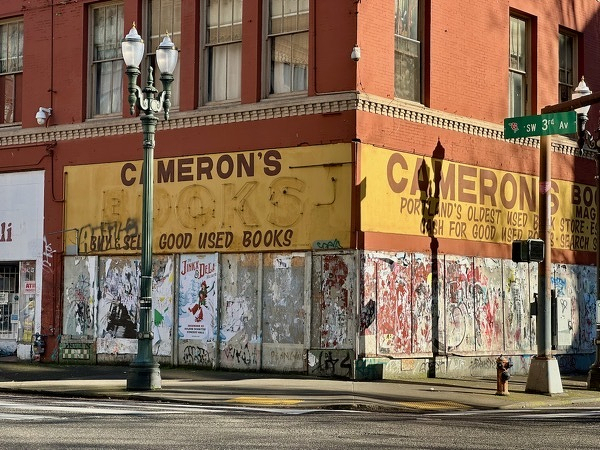
That used to be Cameron’s Books and Magazines, founded in 1938 and in operation until April 2021 when the building owners decided not to renew the lease. It was the gateway to a stretch of 3rd Avenue that I imagine in some better days was tourist central but was now lined with rubbish-filled shopping carts and neon-colored tents.
Walking towards the more expensive part of town I realized that the independent shop owners who were more savvy moved closer to the Tiffany district, with eye-popping prices to match the cleaner interior design; those without business sense moved to Etsy. So goes the K-shaped “recovery”: But let’s call the phenomenon by its real name: worsening inequality. either you can afford the $20 recycled cotton tote bag brandished with a subtly progressive slogan, or you risk tripping over a passed out drug user on your way to a bargain.
Last year I was quite enthusiastic about Waymo, Google’s self-driving cars that have been on their way to DC for quite a while now with no go-live date in sight. Well just this week I was in San Francisco again and the difference in experience was striking. Last year I had a family member or two with me so it was never a one-person ride. This year I came by myself, and felt lonely sitting in the back seat of a large Jaguar. I couldn’t look at the phone — those dots don’t really help with motion sickness — so I just listened to a podcast while staring through the window.
In contrast, I had excellent conversations with every taxi and Lyft driver on this trip. But I’ll skip recounting those lest I turn into Tom Friedman.
A working telephone, as seen in the lobby of the Fairmont hotel in San Francisco. Note that the dial is not, in fact, rotary and that the phone is digital — the physical equivalent of the faux vintage (fauxld?) photo filters that are themselves now quaint but used to be a new phenomenon.

📸 Day 10: Travel.
Of which we did a lot this year. The first trip was to San Francisco to see some of its tilted houses or, in this case, a tilted hotel.
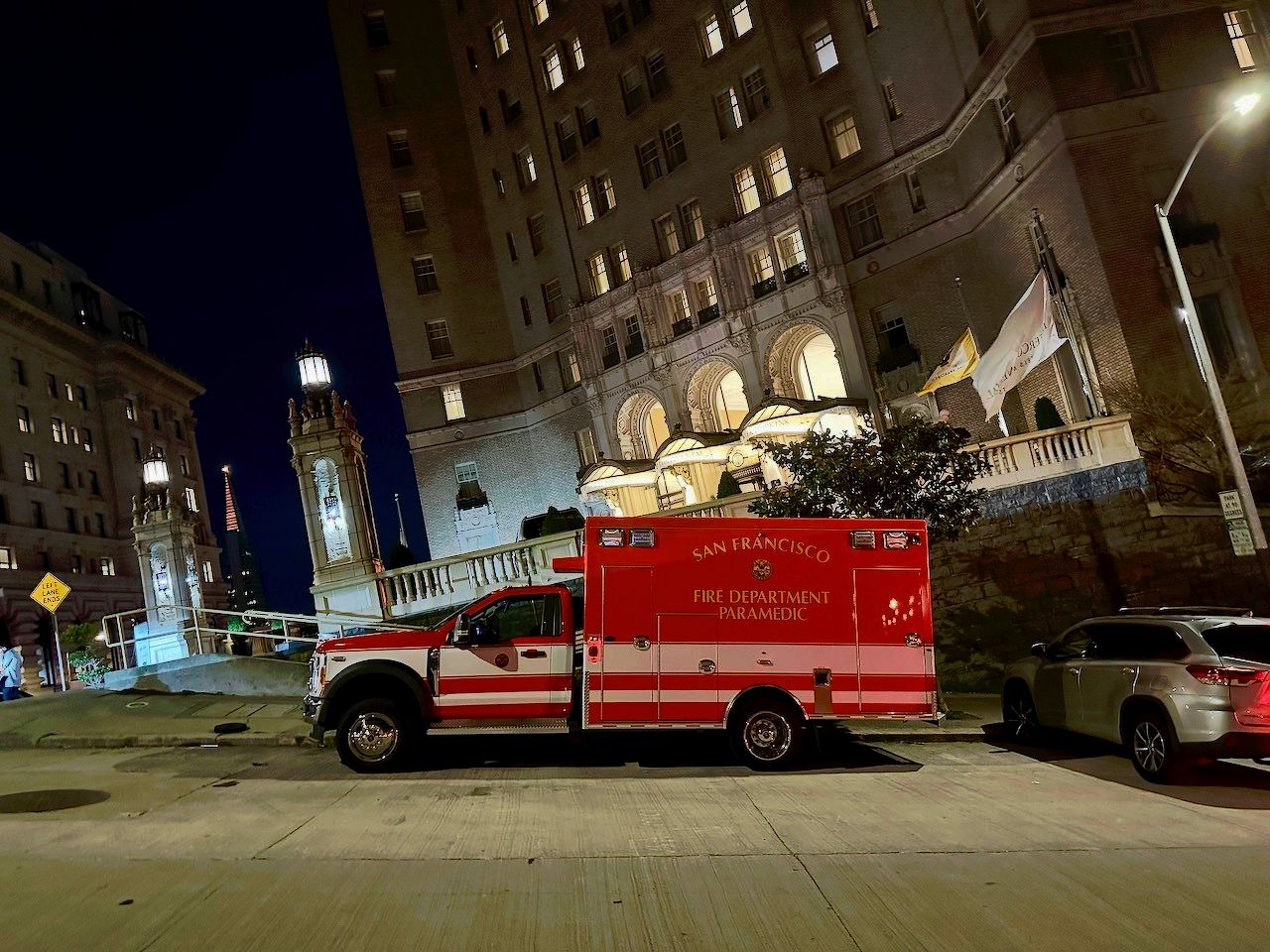
📸 Day 9: Baking.
A box of Honolulu’s finest malassadas. We learned about the place from our Lyft driver who turned out to be a fellow Serbian immigrant. Small world.
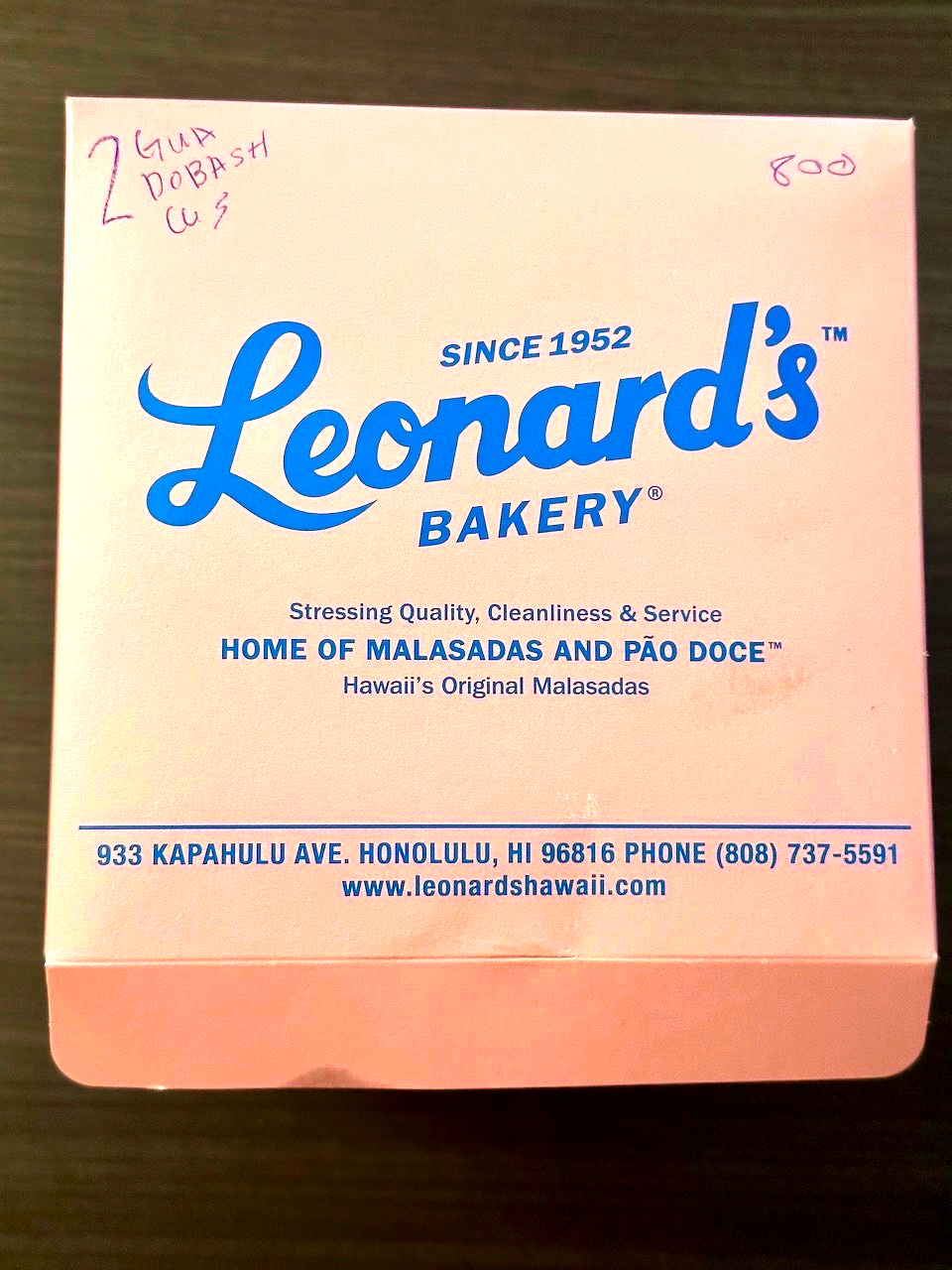
📸 Day 8: Grinch.
No photos of the guy on my camera roll, but is this Tawny Frogmouth we saw at the Norfolk Zoo not a spitting image? Just paint him green and call it a day.
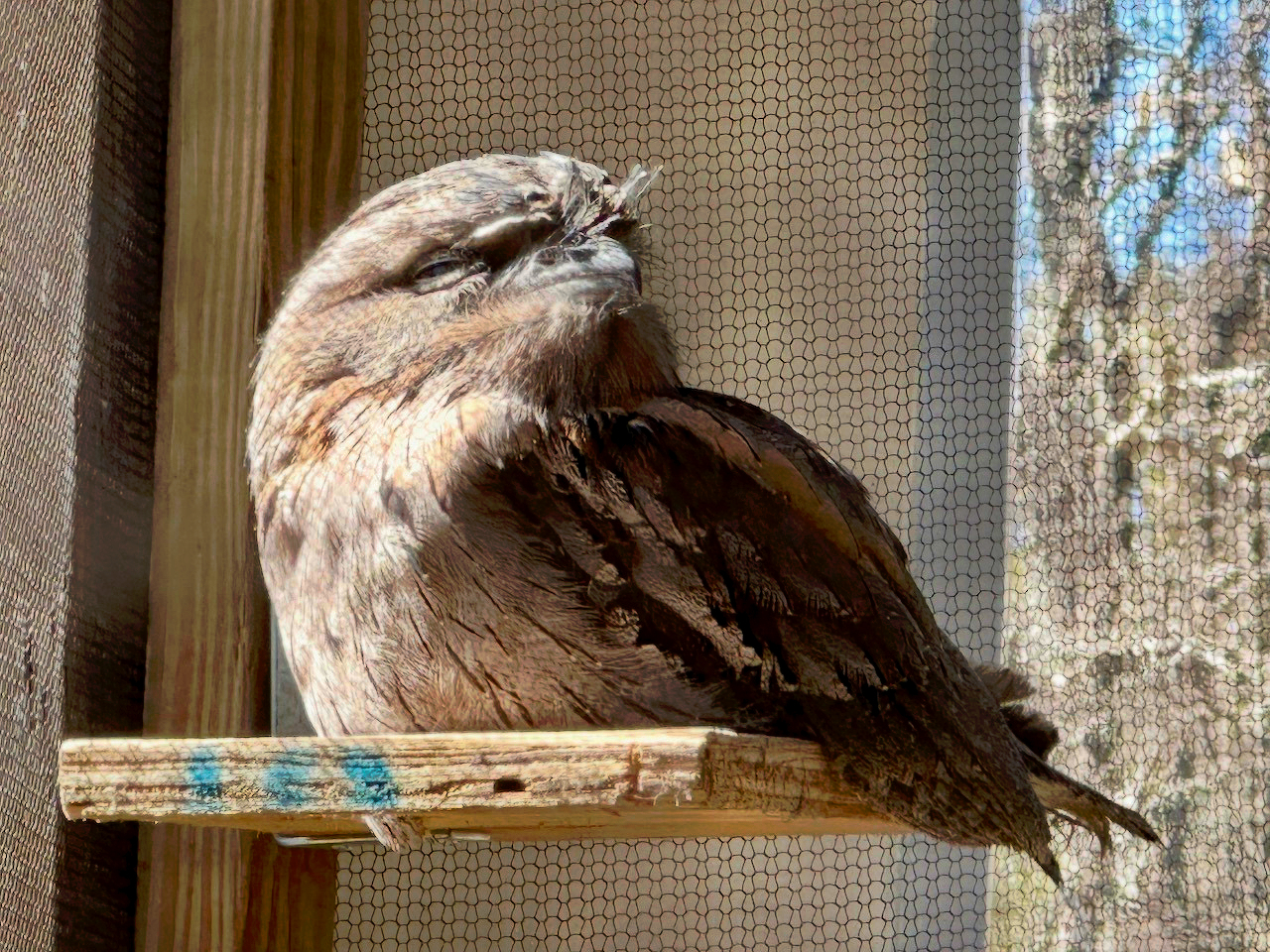
📸 Day 7: Solstice.
These stone pillars at the Kadinjača monument in Western Serbia are not exactly Stonehenge, but maybe they do align with the stars? Incidentally, the Yugoslav World War 2 monument architecture is the only kind of brutalism I can get behind.
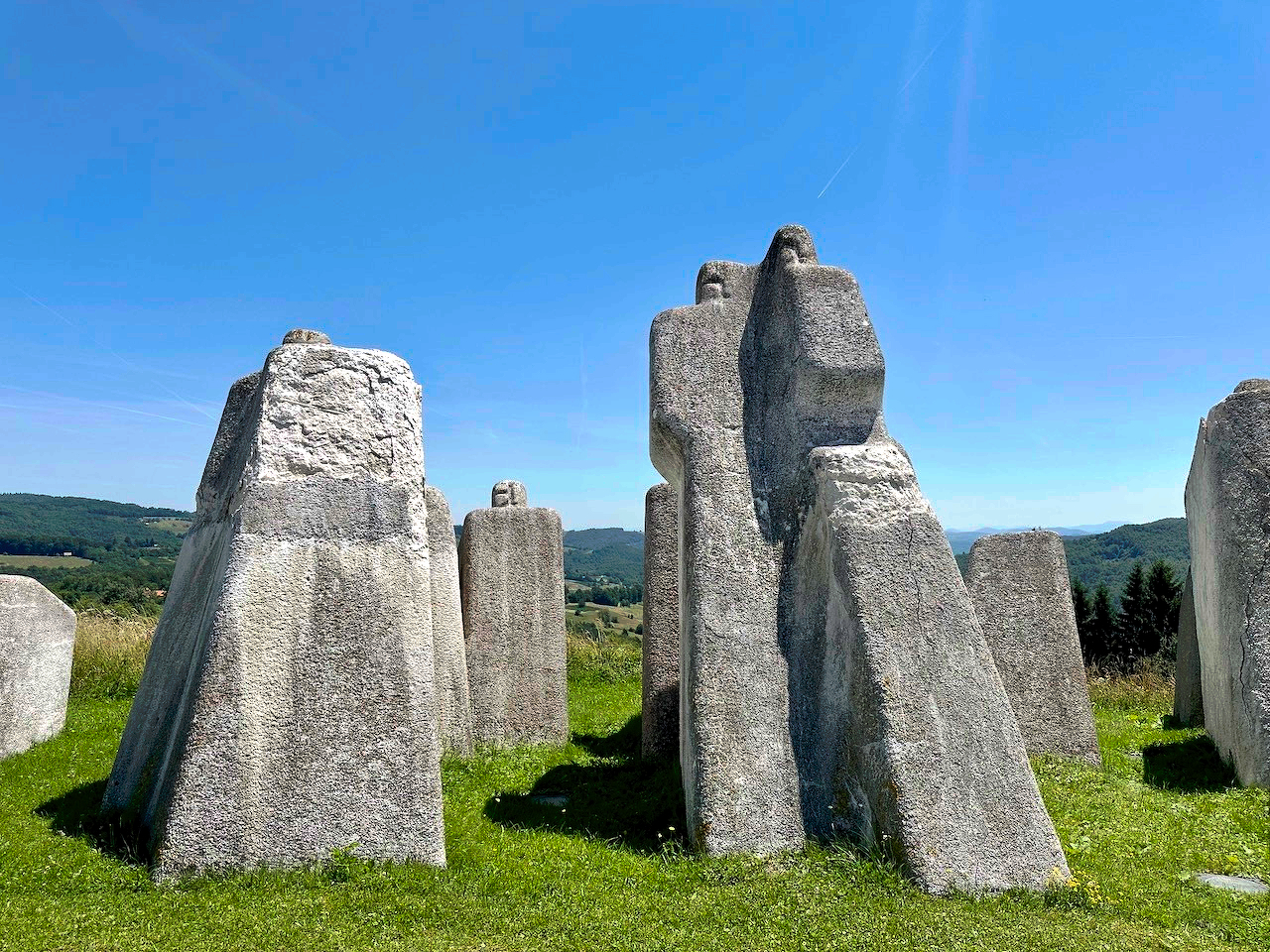
📸 Day 6: Sparkle.
You don’t have to wait for the holiday season to light some sparklers. This one was from a trip to the Outer Banks, cropped to protect the innocent.
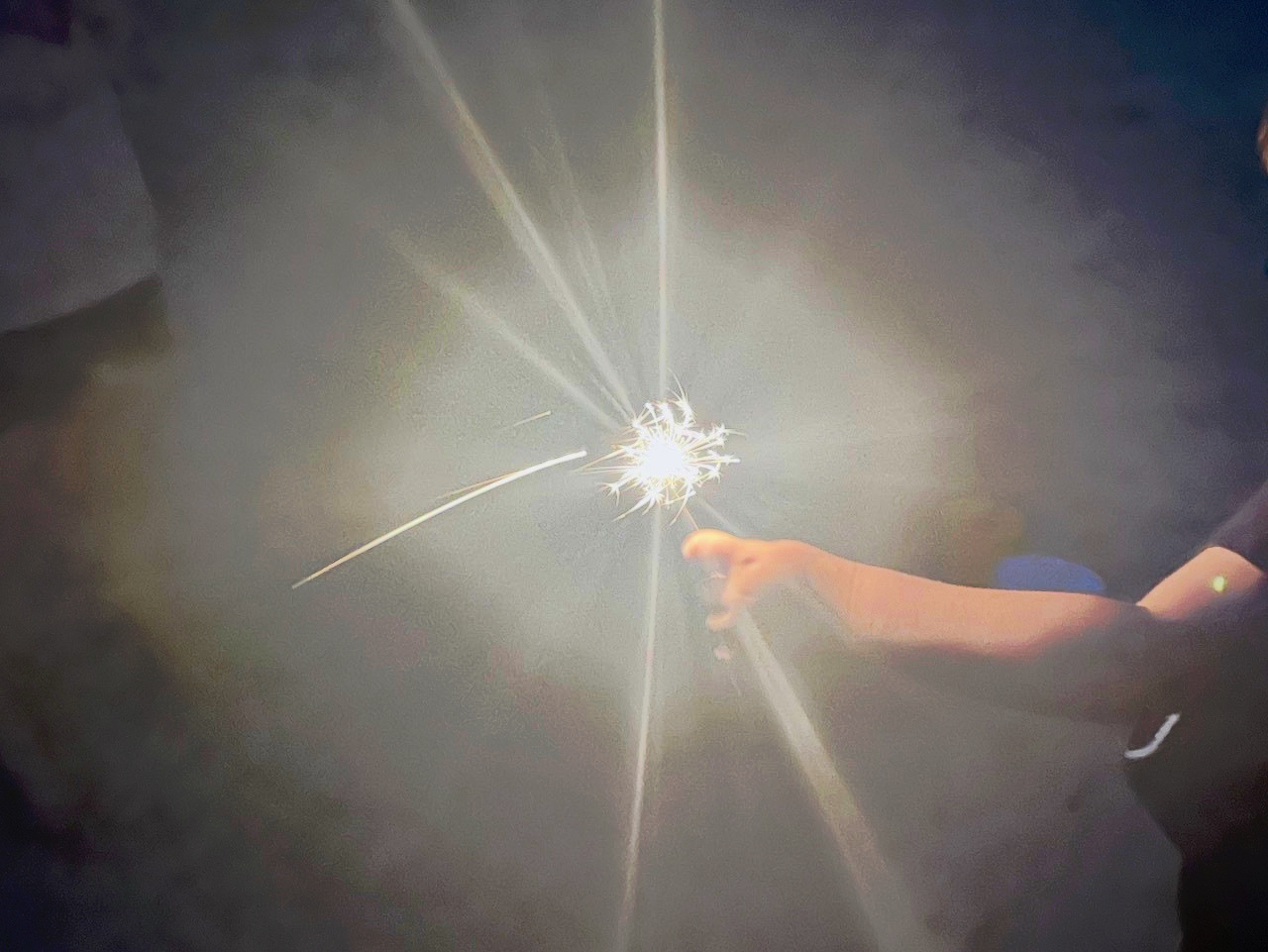
📸 Day 5: Beard.
The owner of the beard is Father Damien of Molokai, a 19th century Belgian Catholic priest whose statue stands in front of the Hawaiʻi State Capitol. He cared for leprosy patients on the island for more than a decade until himself succumbing to it, age 49.
